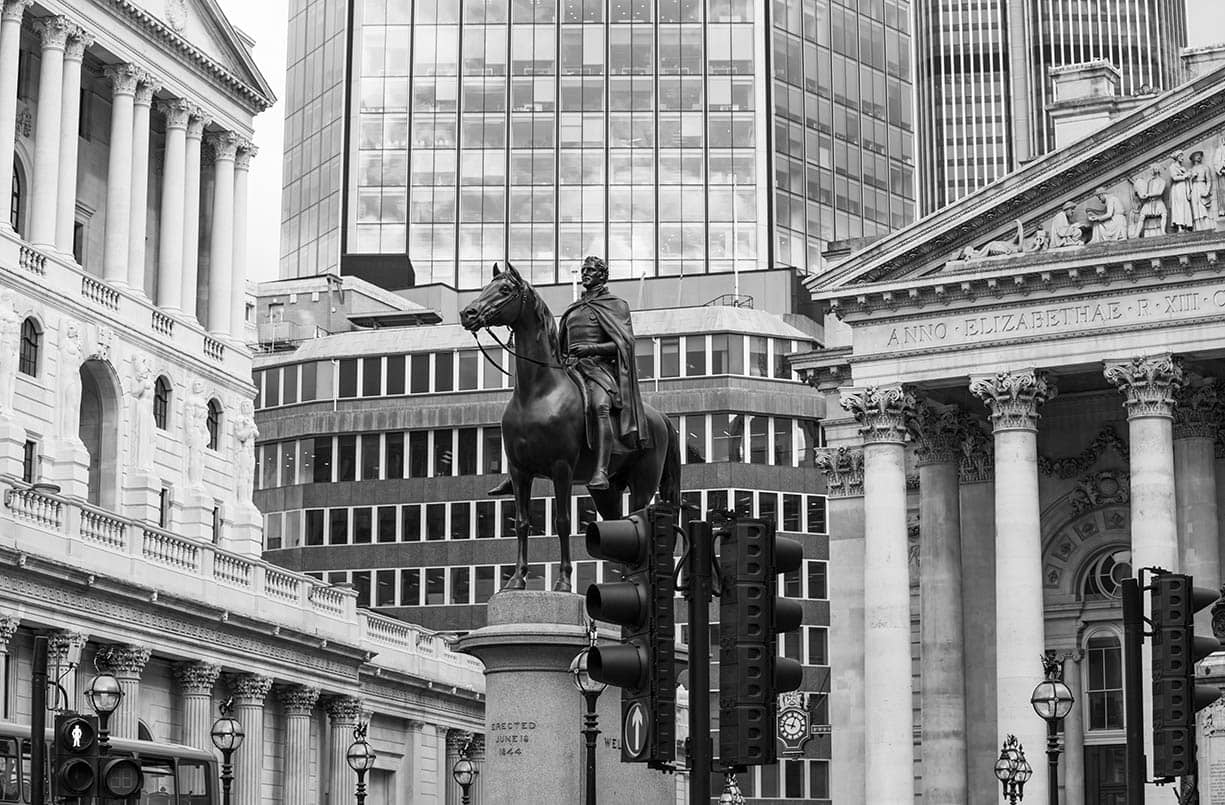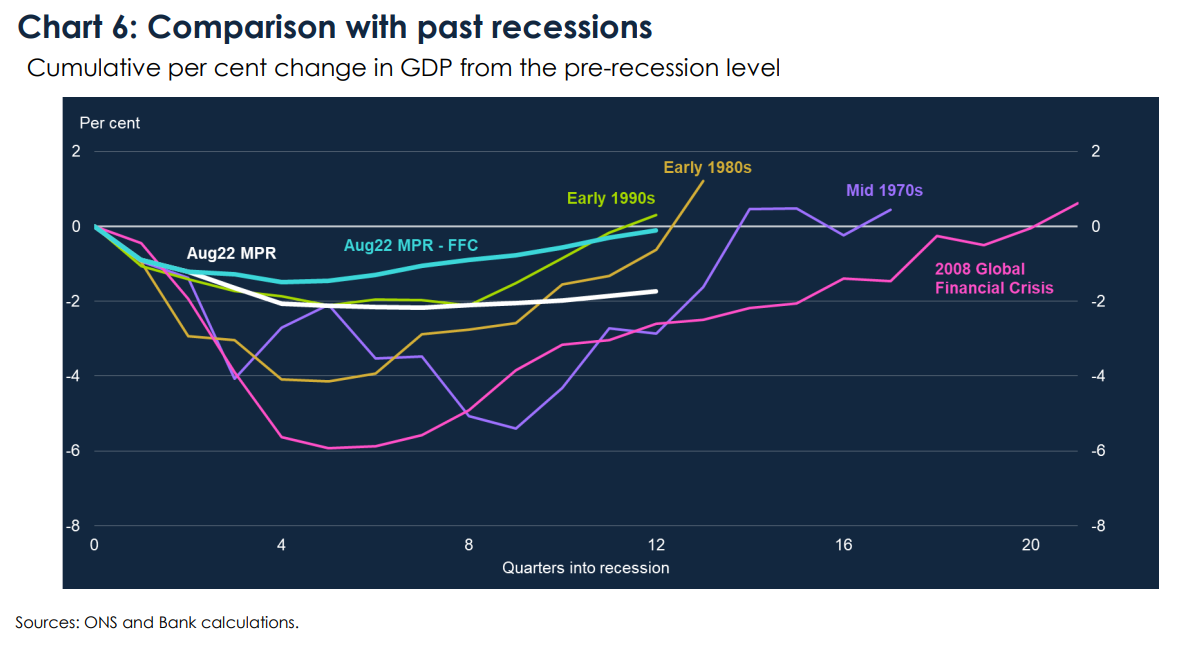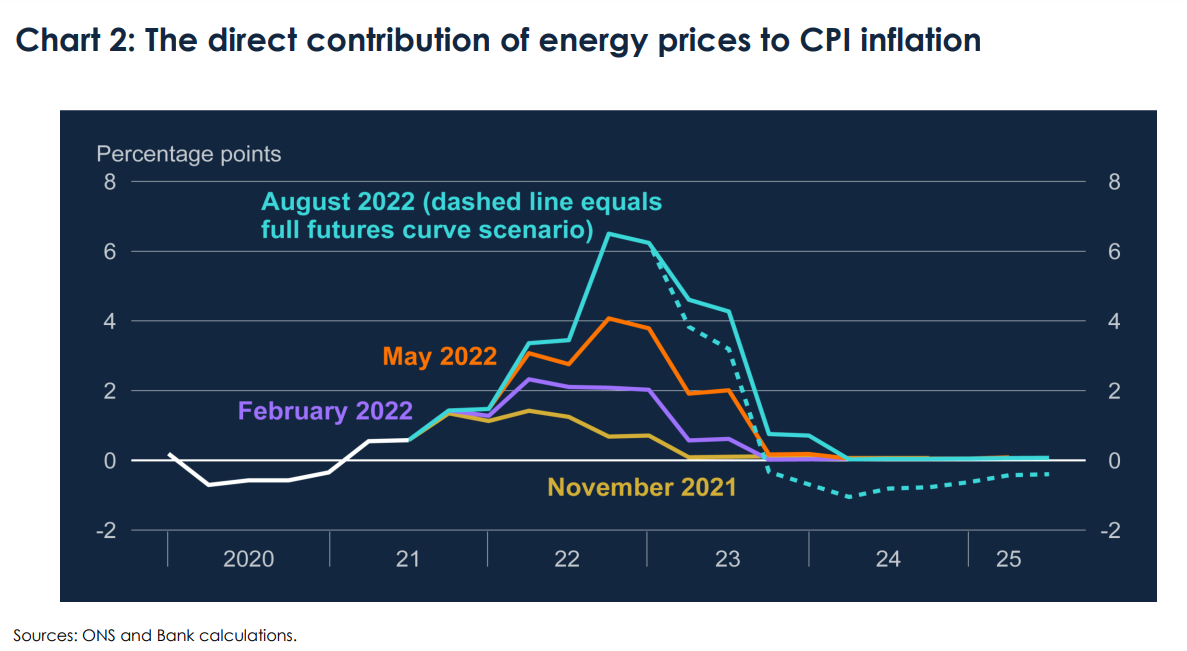Bank of England Celebrated with Applause at Citigroup FX Business
- Written by: James Skinner
"Decision day at the Bank Of England last week was for me one of the most amazing things I have seen," Tom Fitzpatrick, CitiFX.

Image © Adobe Stock
The Bank of England (BoE) won applause from within the Citigroup foreign exchange business on Friday for its upfront acknowledgement of the UK economic car crash in progress and simultaneous steely resolve to go on doing whatever is necessary to drive inflation back to the two percent target level.
Monetary Policy Committee (MPC) members at the BoE are not meant to be popular and sometimes their role in managing inflation can leave them with little choice but to do things that are almost certain to make them exactly the opposite but they were celebrated by a veteran of the foreign exchange market writing for Citigroup on Friday.
"Decision day at the Bank Of England last week was for me one of the most amazing things I have seen. At the same time as the Bank Of England announced a 50 bp’s interest rate increase (and likely more to follow) it also stated that it expected 5 negative quarters of GDP to come," says Tom Fitzpatrick, global head of CitiFXTechnicals.
"That is even worse than the 4 out of 5 negative quarters the US experienced between Q1, 1974 and Q1,1975 under Arthur Burns’ Fed stewardship. There might not be many things that we would give central banks 10 out of 10 for these days but that unbridled honesty probably deserved the rating," he added.

Pound Sterling had momentarily attempted to stage a rally last Thursday after the BoE announced its largest interest rate rise since 1995 but the currency was quick to recoil in horror following its first look at the economic forecasts contained in the August Monetary Policy Report.
August's projections suggested the UK is on route to five unbroken quarters of economic contraction that culminate in a recession as deep and long as those seen in the early parts of 1980s and 1990s owing to monstrous increases in business and household energy costs.
But that didn't stop the BoE from raising Bank Rate to its highest since before the big bang part of the 2008 financial crisis while also warning that it would lift borrowing costs further if that's what it takes to prevent domestic firms from adding further to inflation by continuing to lift product and service prices.
"They ARE serious about meeting their inflation mandate. I agree with Ross and Imogen in not seeing this as a dovish hike, but as a validation of a changed reaction function," says John Briggs, global head of economics and markets strategy at Natwest Markets.
"I think that the Bank of England is really just being the most honest of the central banks, where they are admitting that a hard landing is very likely if the Bank is serious about meeting its inflation mandate," Briggs wrote in a Monday summary of the latest research views from Natwest Markets.

Many commentators wrote off the rate rise from the BoE as a reluctant step that is unlikely to be repeated but seemed to overlook signs of a big change in the Monetary Policy Committee's overall psychology and assessment of what it may have to do in order to bring down inflation.
This is what is meant when Natwest Markets' Briggs refers to a "reaction function" that now appears to incorporate into it a willingness to squeeze companies and households further with even higher interest rates even as the economy itself comes off the rails if that proves to be necessary in order to pull inflation back to the 2% target.
That was indicated when the BoE said that high energy prices would "inevitable lead to volatility in output" from the economy and removed the part about “minimising undesirable volatility in [economic] output” from a regular characterisation of what the MPC perceives as the necessary course of action for the months ahead.
"The cost of living squeeze isn’t showing up yet in the quarterly data. The addition of an extra holiday also likely weighed on things for June," says Bipan Rai, North American head of FX strategy at CIBC Capital Markets, following Friday's release of second quarter GDP data from the UK.
"Advance Q2 GDP data released this AM shows that the economy contracted by -0.1% q/q," Rai said after the June and second quarter economic contractions came in smaller than was anticipated by the market.




